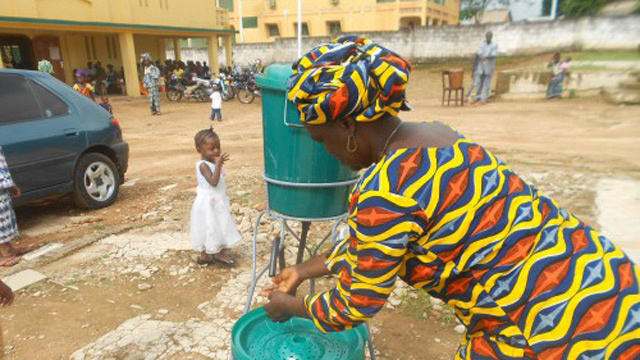Ebola: Development and Peace confirms its support

General
Development and Peace confirms its support for Caritas Sierra Leone in an effort to help stop the spread of the Ebola virus. The World Health Organisation (WHO) declared a global health emergency this week.
As more than 1,000 deaths in Sierra Leone, Guinea, Liberia and Nigeria have been linked to the Ebola outbreak.
Since February 2014, West Africa has been facing the most serious outbreak of Ebola since the virus was discovered in 1976. In Sierra Leone, the first outbreak of the virus dates back to May 25 of this year. The whole country is now at risk, and as of August 9, a total of 656 positive cases were confirmed, with 276 deaths.
Development and Peace supports Caritas Sierra Leone for a project that will benefit 180,000 people, seeking to
- improve knowledge, attitudes and behavior concerning Ebola prevention and transmission;
- improve hygiene practices to reduce person-to-person transmission of Ebola;
- build trust through dialogue involving communities, health workers and border personnel;
- help solve the problem of denial within communities at risk and affected; and
- reduce the stigma of people suffering from Ebola or suspected of being infected.
Controlling the Ebola epidemic is hampered by many sociocultural factors: traditional beliefs and practices; ignorance and misunderstanding of its causes; lack of confidence in the health care system; the stigmatization of people infected, leading individuals to refuse to report their infection, to hide, or to flee from health centres, and to refuse to be tested or receive treatment.
"So the solution to this situation cannot be purely and technically medical; it must also be social and community based. It involves an investment in individual and collective mobilization, in addition to health services, in order to ensure control and prevention of this scourge", explains Stéphane Vinhas, Emergency Program Officer for Development and Peace.

Comment
0 Comment
Add new comment